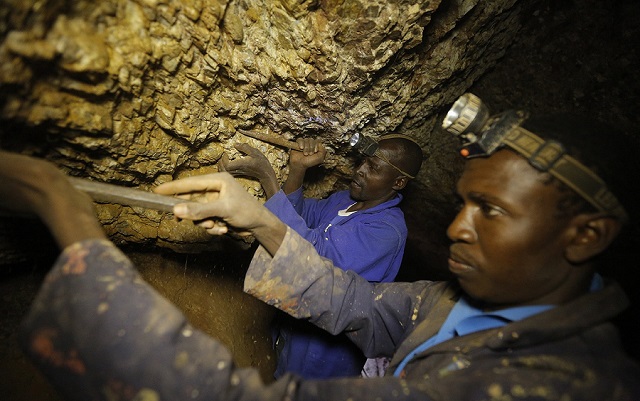
Kampala, Uganda | THE INDEPENDENT | Investors in Uganda’s mining sector will be required to deposit an environmental bond as a security that they will restore the environment the way they found it.
An environmental bond is a financial guarantee from a company undertaking the project that it will meet terms set on how it should handle the environment. The companies will be required to observe biodiversity, handle mining waste, and show emergency planning and preparations post‐mining transition.
Zachary Baguma, the Commissioner Geology at the Uganda Directorate of Geological Survey and Mines says that the current National Environment Management Authority Act and the requirement for companies to do the environmental impact assessments before undertaking the project has not stopped companies from leaving open pits after digging minerals.
He explains that as a result, Uganda has a lot of non-restored areas or orphaned mines that were left by companies that had promised to restore it and never did.
According to the mining and mineral policy for Uganda 2018, the lack of mandatory requirements for an environmental performance bond and the absence of an Environmental Restoration Fund as security for compliance by mineral rights holders for decommissioning, restoration of derelict lands and orderly post-mine closure greatly affects the environment hence its degradation.
In Uganda, Karamoja region has specifically been impacted by orphaned mines. A host of companies that have operated there have left their areas not restored, according to Human Rights Watch (HRW).
Baguma said they are responding to observation in the policy. The requirement for the environmental bond will be pronounced in the New Mineral Bill, 2019.
Sharon Meyer, the manager for international environmental group RSK, said companies must take steps to observe the environment before they do work, do community mapping to make genuine comparisons of how the project affected the community and how they had been affected.
Dr Jenifer Hinton, the director of M2 Cobalt, said bigger companies would support such a move. She said they were followed globally and they would want to leave the area they operated in the way they found it.
Alexander Kamugisha, the managing director of Marsh, an insurance firm, said the companies face huge risks and the environment is one area they have to look at. He cited the example of Brazil where a dam at a mine collapsed in January this year, releasing 11.7m cubic meters of toxic mud, killing more than 200 people, but also causing wide-ranging damage to the environment.
Uganda seeks to attract heavy investment in both the minerals and oil and gas sectors, but these will have a key impact on the environment. To keep it remain pristine, Uganda will have to put its foot down and demand more from companies. The environmental bond will be a good start.
*****
URN
 The Independent Uganda: You get the Truth we Pay the Price
The Independent Uganda: You get the Truth we Pay the Price



